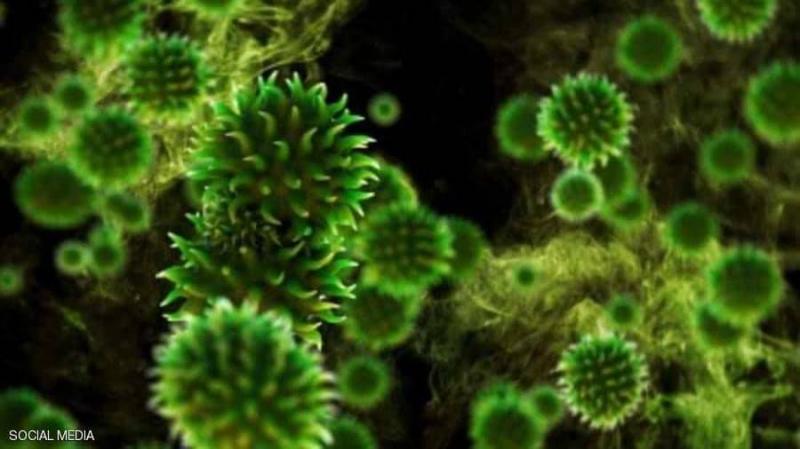After India recorded its first case of "green fungus" in a recovering COVID-19 patient on Wednesday, medical sources revealed the causes of the infection. Indian news agency reported that a medical source in India stated that "the first case of green fungus infection was recorded in a recovered COVID-19 patient in Madhya Pradesh." The source explained that "the patient is 34 years old, had COVID-19 for two months, before experiencing nosebleeds and fever, and tests later confirmed an infection with green fungus."
The Indian agency quoted Ravi Dosi, head of the respiratory diseases department at Sri Aurobindo Institute of Medical Sciences, saying that the disease is an infection with Aspergillosis, and more research is needed on the fungus and its causes. Green fungi, or Aspergillosis, is known to be a rare infection caused by common types of fungi known as Aspergillus. Aspergillosis joins the increasing list of funguses that appeared in COVID-19 patients and survivors. Black fungus "Mucormycosis" and white fungus "Candida" have been seen in increasing numbers in India, but they are often caused by the same fungal types.
**Causes of Green Fungus**
Aspergillosis can occur simply by inhaling microscopic spores from Aspergillus fungus, where the immune system suppresses the growth of any germs inside the body. In some cases, the body may not be able to suppress the growth of the germs, and those with weakened immune systems and those recovering from or suffering from lung diseases are more prone to contracting Aspergillosis.
The increase in fungal infections among COVID-19 patients is attributed to various factors, including lung damage, excessive use of steroids, weakened immune systems, and decreased infection control in hospitals. According to the Centers for Disease Control and Prevention (CDC), invasive Aspergillosis infections can manifest with symptoms such as fever, chest pain, cough, coughing up blood, and shortness of breath. The American Centers have revealed that allergic reactions, lung infections, and infections in other organs are among the health issues caused by Aspergillosis.
However, Aspergillosis is not contagious and cannot spread among people or from people to animals via the lungs. The U.S. health authority states that different types of Aspergillosis affect different groups of people, and allergic bronchopulmonary Aspergillosis often occurs in individuals with cystic fibrosis or asthma. Chronic pulmonary Aspergillosis typically occurs in individuals with other lung diseases, including tuberculosis, chronic obstructive pulmonary disease, or sarcoidosis. The CDC states that other symptoms can develop if the infection spreads from the lungs to other parts of the body.




